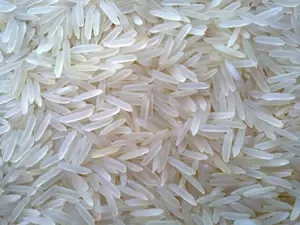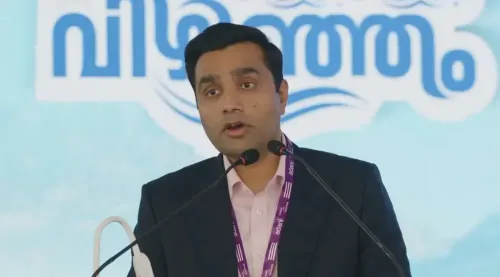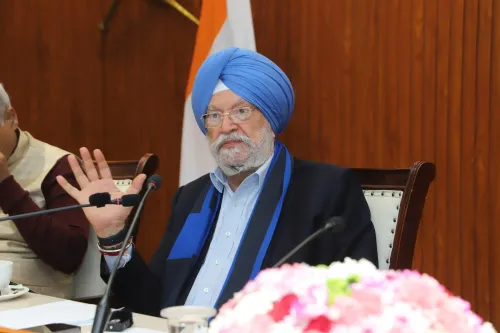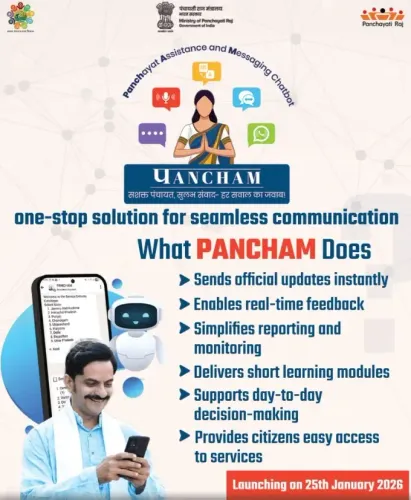What are the implications of 27 MoUs for Rs 66,000 crore investment in India's maritime sector?
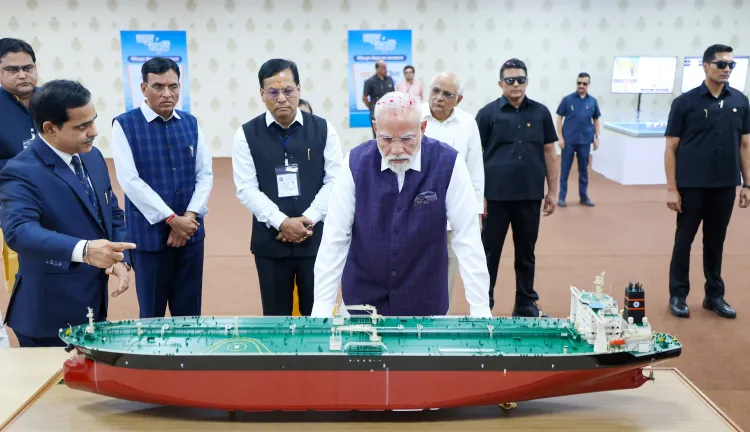
Synopsis
Key Takeaways
- 27 collaborative agreements signed for over Rs 66,000 crore investment.
- Significant job creation potential of around 25,000 opportunities.
- Focus on sustainable transport solutions and energy-efficient projects.
- Development of major ports and shipbuilding clusters.
- Initiatives supporting Atmanirbhar Bharat vision.
New Delhi, Sep 28 (NationPress) A total of 27 collaborative agreements have been established, promising an investment exceeding Rs 66,000 crore in India’s maritime and shipbuilding sector involving public and private stakeholders, state governments, and international collaborators, as stated in an official announcement made on Sunday.
These initiatives are poised to significantly enhance India’s position as a premier global maritime and shipbuilding center over the next decade, aligning with the national vision of an Atmanirbhar Bharat, according to the report.
The MoUs were executed on September 18 in Bhavnagar during the “Samudra Se Samriddhi – Transforming India’s Maritime Sector” event, which was addressed by Prime Minister Narendra Modi. Numerous maritime-related projects were unveiled during this occasion, with Union Minister of Ports, Shipping and Waterways Sarbananda Sonowal present at the signing.
One of the notable agreements, valued at around Rs 21,500 crore, was formed between the Paradip Port Authority, the Visakhapatnam Port Authority, the Sagarmala Finance Corporation Limited, and the Odisha government for the establishment of a new port at Bahuda. This port, with a capacity of 150 million tonnes per annum, will be developed on over 6,700 acres of coastal salt land designated for maritime purposes. It aims to serve as a catalyst for port-led industrialization, logistics hubs, and manufacturing clusters across Odisha and northern Andhra Pradesh, providing nearly 25,000 direct and indirect job opportunities while stimulating industrial and infrastructure growth in eastern India.
Additionally, a focus on sustainable transport solutions was emphasized with an MoU signed between the Inland Waterways Authority of India and the Bihar government for a Water Metro Project in Patna, estimated at approximately Rs 908 crore. This partnership aims to implement energy-efficient electric ferries, develop modern terminals, and connect urban waterways with multimodal public transport systems.
Sonowal remarked: "These MoUs signify India’s maritime resurgence. Through collaborative efforts among states, industries, and global partners, we are ushering in a new phase of shipbuilding and port-led growth. This endeavor is not solely about infrastructure; it's about job creation, community empowerment, and establishing India as a prominent maritime nation globally."
In terms of shipping advancements, a significant move towards India’s energy autonomy was revealed through the MoU between the Shipping Corporation of India and Oil PSUs—IOCL, BPCL, and HPCL to form a Vessel Owning Joint Venture Company. This initiative will consolidate vessel demand from energy PSUs, subsequently decreasing dependency on foreign shipping fleets.
Another set of MoUs signed during the event focused on shipbuilding and its associated sectors. The ministry facilitated agreements between major ports and the governments of Andhra Pradesh, Odisha, Gujarat, Maharashtra, and Tamil Nadu to initiate the establishment of shipbuilding clusters.
The ceremony showcased numerous collaborations between Indian industries and international entities. A prominent MoU was inked between Cochin Shipyard Limited and HD Korea Shipbuilding & Offshore Engineering, marking a long-term strategic partnership for constructing large commercial vessels in India. This partnership will enable India to produce substantial carriers, including Suezmax oil tankers, container ships, and bulk carriers, with an annual capacity of up to six ships. To support this operation, CSL has planned an 80-acre Block Fabrication Facility (BFF) in Kochi, involving an investment of about Rs 3,700 crore and a potential throughput of 120,000 metric tonnes of steel fabrication each year. The facility is expected to generate around 2,000 direct jobs and significantly more indirect employment in allied sectors, particularly MSMEs and supply chains.
CSL also signed an MoU with SIPCOT and Guidance Tamil Nadu to develop a shipbuilding complex valued at Rs 15,000 crore in the state. Moreover, Mazagon Dock Shipbuilders Limited entered into a parallel MoU with Guidance Tamil Nadu to establish another significant greenfield yard in Thoothukudi.
The Gujarat Maritime Board leveraged Bhavnagar’s historical shipbuilding legacy by signing multiple agreements with private entities, including Act Infra Ports, Modest Infrastructure, Chowgule and Company, and SWAN Defence. These agreements, collectively exceeding Rs 13,600 crore, outline extensive facilities for shipbuilding, ship repair, offshore infrastructures, and recycling yards across various locations, including the Gulf of Kutch, Nava Ratanpara, and Pipavav.
In addition to these substantial infrastructure projects, several MoUs tackled the pressing issue of sustainable financing within the maritime industry. The Sagarmala Finance Corporation Limited signed agreements with financial institutions such as Neo Fund, NaBFID, IIFCL, and Climate Fund Managers, paving the way for dynamic investments in the maritime sector.
Highlighting India’s maritime heritage and its contribution to cultural-economic development, an MoU was established with an investment of Rs 266 crore between the Directorate General of Lighthouses and Lightships and the Indian Port Rail & Roadways Corporation Ltd to set up the world’s tallest lighthouse museums at a height of 77 meters at the National Maritime Heritage Complex in Lothal, Gujarat.


